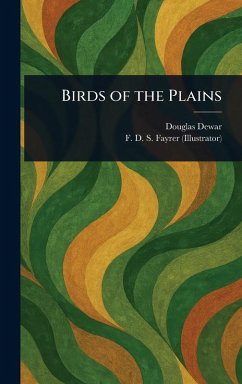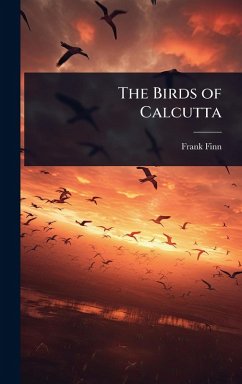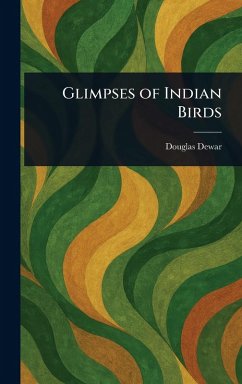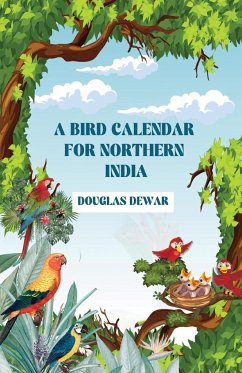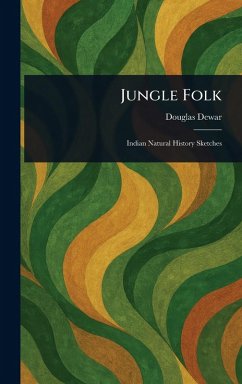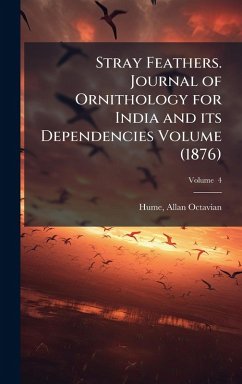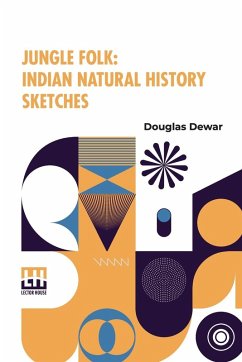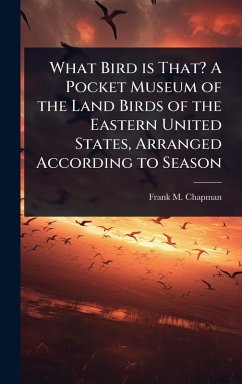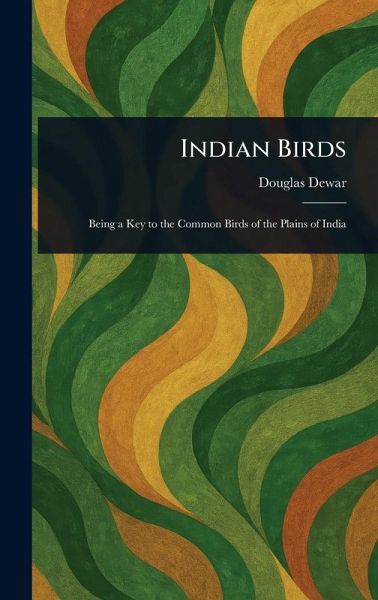
Indian Birds
Versandkostenfrei!
Versandfertig in über 4 Wochen
31,99 €
inkl. MwSt.
Weitere Ausgaben:

PAYBACK Punkte
16 °P sammeln!
"Indian Birds: Being a Key to the Common Birds of the Plains of India" by Douglas Dewar is a timeless guide for identifying the birds of India. A classic of ornithology focused on the common birds found in the plains, this meticulously prepared edition offers enduring insights into the natural world. This book serves as a valuable resource for anyone interested in the diverse avian life of the Indian subcontinent. It is an essential addition to any collection focused on Indian birds, regional nature, or travel in Asia. Bird enthusiasts and students of natural history will appreciate Dewar's de...
"Indian Birds: Being a Key to the Common Birds of the Plains of India" by Douglas Dewar is a timeless guide for identifying the birds of India. A classic of ornithology focused on the common birds found in the plains, this meticulously prepared edition offers enduring insights into the natural world. This book serves as a valuable resource for anyone interested in the diverse avian life of the Indian subcontinent. It is an essential addition to any collection focused on Indian birds, regional nature, or travel in Asia. Bird enthusiasts and students of natural history will appreciate Dewar's detailed observations and dedication to documenting the birds of India. Discover the fascinating world of Indian birds with this indispensable key. This work has been selected by scholars as being culturally important, and is part of the knowledge base of civilization as we know it. This work is in the public domain in the United States of America, and possibly other nations. Within the United States, you may freely copy and distribute this work, as no entity (individual or corporate) has a copyright on the body of the work. Scholars believe, and we concur, that this work is important enough to be preserved, reproduced, and made generally available to the public. We appreciate your support of the preservation process, and thank you for being an important part of keeping this knowledge alive and relevant.





